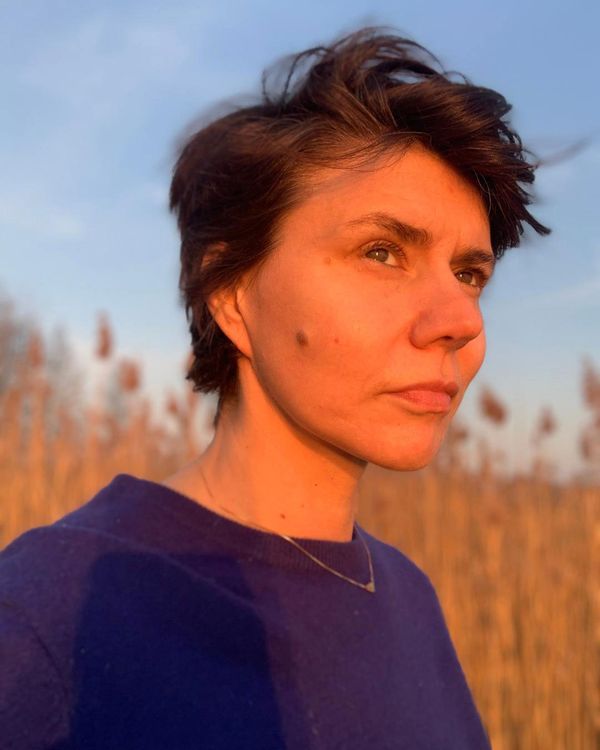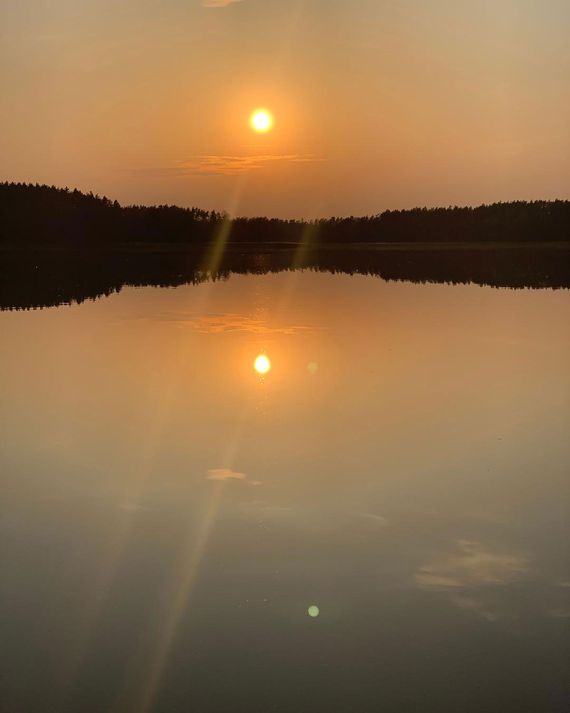
The situation in Poland right now is definitely not as hard as in the U.S., but IÔÇÖm sure that unfortunately we will get to the same level. We donÔÇÖt have so many deaths so far, but each day itÔÇÖs increasing. Unofficially, people think the numbers are much higher, because we donÔÇÖt have enough tests. Our government acted pretty fast, but the tsunami is slowly coming. A couple of weeks ago, as this was all beginning, I was talking with my friends from London and Paris, and they were shocked when I explained how seriously Polish people were taking it. Our society has discipline because we passed through a really terrible history with communism, and people learned how to unite together, how to behave in that kind of situation. But also, they listen to the government ÔÇö which is sometimes a good thing, and sometimes not. The right-wing government is insisting on having elections on May 10, which is incredible. They are using the coronavirus situation to win the presidential election. Because in times like this, itÔÇÖs easy for populist politicians to manipulate society.
About three weeks ago, all schools and theaters, cinemas, restaurants closed. And then, step by step, they increased the restrictions. Now, for example, in the city, you can walk only 100 meters from your place to buy some food ÔÇö maximum 200. The shops are open in the morning for two hours only for seniors. The police are everywhere, my friends told me. IÔÇÖm in the countryside. I am lucky. I am privileged. In the early 1980s, during the time of martial law, my parents, who died many years ago, bought a little old house in a village in Masuria. This is a region that was originally German before World War II. Afterwards, it was one of the poorest areas in Poland. It is still very poor. People donÔÇÖt travel much here. TheyÔÇÖre all sitting in their houses.
I am in a village of 14 houses. ThereÔÇÖs almost no one here. I can walk to the lake. I have a little garden. But then when you travel to shop in the little towns, there are all the same restrictions as the big cities. I try to shop twice a week. We travel by car and it takes us approximately 40 minutes to get there. We try to do it evenings, just before closing hours. We usually wait 15 to 20 minutes outside. And then we go in, and I feel like IÔÇÖm almost alone inside the store. IÔÇÖve heard from friends in Warsaw that itÔÇÖs becoming a nightmare now, because people are staying in very long lines, waiting to get into stores, and they are becoming aggressive to each other. ItÔÇÖs definitely much calmer here. You canÔÇÖt feel a panic yet, but I think itÔÇÖs growing.
The first week, I had a lot of doubts about all these cancellations and restrictions. I was trying to analyze the whole situation, trying to not feel too much anxiety. Then I thought it was something we had to pass through, and that maybe the U.K. model is better. Of course, they changed their model. Now, people are dying. ItÔÇÖs hard to understand and digest that it has turned into a very, very serious and heavy thing. I started to take it really seriously when I saw how huge an impact it had on me personally. For example, the cinemas are locked down. They are not paying distributors. Distributors are not paying producers. Producers are not paying artists. My husband is an actor and writer. I am a film director and writer. I now see that it could be, economically, a nightmare ÔÇö something I never expected before, because I thought, Ah, I am a value. IÔÇÖm an economical value because I have a talent. Everyone wants me! I can do whatever I want because I can always find a job, anywhere! We are egoists. We think that itÔÇÖs always going to be something behind us, that nothing will happen to us. And now, we realize thatÔÇÖs bullshit.
IÔÇÖm a person whoÔÇÖs always moving, and walking. IÔÇÖm always doing something. In the house, I have to find wood, work on the chimney, cook for my children. I have a son and a daughter, so I cook a lot ÔÇö when you are very stressed, cooking lets you forget for a few hours. IÔÇÖm also trying to keep myself in good shape. IÔÇÖm doing yoga, and other exercises. IÔÇÖm trying to meditate each day for 10 minutes to keep myself balanced.
But also, IÔÇÖm working. IÔÇÖm editing a new film online, which I found to be very complicated, because for the first time in my life, I canÔÇÖt sit with my editor. He sends me pieces of my film and I send him back notes. I was very excited to have The Other Lamb in IFC theaters, in Los Angeles and New York. My filmmaker friends from around the world were congratulating me. When I learned that they decided to only do a VOD release, of course, I was disappointed, but what could I do? But also, because other films have decided to wait, there is suddenly more interest in The Other Lamb, from the press and from viewers. I never expected that kind of interest. IÔÇÖm not famous in the U.S. IÔÇÖm a European independent director. So, maybe paradoxically, this helped a little bit, because mine is a little film. IÔÇÖm reading a lot of scripts, many from the U.S. I read them and try to dream of a bright future one day when maybe I can make some of them.
Of course, IÔÇÖm reading books. IÔÇÖm a very good reader, but itÔÇÖs hard to concentrate. IÔÇÖm reading an American author ÔÇö Jonathan Franzen, his old book Strong Motion. Plus IÔÇÖm reading Susan SontagÔÇÖs diaries, published by her son. ItÔÇÖs the second time IÔÇÖm reading them. I feel a very strong connection to Susan. And diaries are amazing things to read now because you can read a few pages and think about it. ItÔÇÖs easier than Franzen, who I love, but heÔÇÖs so complicated. You have to be really focused, and IÔÇÖm just blowing away because of my anxiety. Plus, I have David Foster Wallace.
IÔÇÖm also reading a Polish Nobel prize winner from this year, Olga Tokarczuk, who is amazing. She published on her Instagram some of her feelings about this time. She lives in a little village like I am in now. But she has a neighbor, a kilometer or so away from her house, and he is a lawyer. She wrote that each day she would see him totally busy, very elegantly dressed up, in his car, going to work and coming back ÔÇö a workaholic. Now, she sees him every day in dirty clothes, planting trees in his garden. And then she wrote about some people who had an old sick dog, and they were about to put him to sleep. But now, every day, they are trying to walk this dog. She writes these little things, like only a writer can do ÔÇö these little observations of hope.
Of course, IÔÇÖm watching films. IÔÇÖm watching them with my son, who is 14, but very mature and smart. So, for example, we watched There Will be Blood, which I love. Then we watched Blade Runner, the old one. ItÔÇÖs a masterpiece. That moment when Rutger Hauer is dying, and the speech that he gives ÔÇö itÔÇÖs heartbreaking. I had forgotten these little details. Then we watched Seven. My son was like, ÔÇ£Too much. ItÔÇÖs too much.ÔÇØ Now, I want to watch Mirror by Andrei Tarkovsky. It was always my favorite film, and IÔÇÖm ready to watch it again. ItÔÇÖs a dark time, so IÔÇÖm watching only dark films. I said to myself that maybe the next film I do will be a comedy.
More From This Series
- Whoopi Is Over It
- Meghan McCain Accidentally Made a Great Point About Representation on The View
- Watch Meghan McCain Call Trump a ÔÇÿMad KingÔÇÖ on The View


